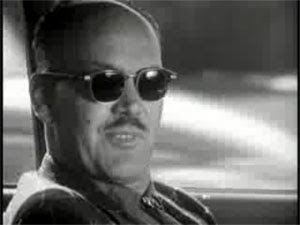Inició Tercera Conferencia Internacional de Propiedad Intelectual e Industrias Creativas en Cali
Con la presencia de expertos de Indonesia, México y Jamaica, se dio inicio a la Tercera Conferencia Internacional de Propiedad Intelectual e Industrias Creativas, auspiciada por la Organización Mundial de la Propiedad Intelectual- OMPI, el Ministerio de Cultura de Colombia y el Proyecto de Industrias Culturales de Cali.
El evento se cumple en el auditorio principal del Centro Cultural Comfandi y en representación de Colombia intervino la viceministra de Cultura, María Claudia López, quien se refirió a los desarrollos alcanzados por el principal ente de la cultura en el país, en la promoción de las Industrias Culturales.
La alta funcionaria coincidió con el secretario de Cultura de Cali, Argemiro Cortes, quien dio la bienvenida a los asistentes en representación del Alcalde de la ciudad, en el sentido que la cultura no puede seguir siendo considerada como un gasto, pues representa una de las más importantes inversiones para el desarrollo socioeconómico nacional, tal como lo muestran las estadísticas que ubican a este campo con el 3.4 por ciento del total del PIB.
Se refirió asimismo a la construcción de los clúster de cultura a través del programa de Laboratorios Sociales de Emprendimiento Cultural (laso), que brinda capacitaciones y apoyo técnico a las creaciones de colectivos culturales del sector musical entre grupos de jóvenes de estratos socioeconómicos bajo y medio.
Al finalizar su intervención anotó la importancia del tema de Propiedad Intelectual y Derechos de Autor, porque con ello se cuida la obra de los artistas, para que ellas obtengan el valor que se merecen en la Industrias Culturales. Las obras que son mas registradas son las literarias y las musicales, y es por ello que el gobierno trabaja en decreto para la difusión y la plena consecución de la Propiedad Intelectual y los derechos de autor en el país, concluyó.
Amparo Sinisterra de Carvajal, presidenta de Proartes, señaló a su turno que las industrias culturales, la propiedad intelectual y los derechos de autor son de suma importancia para construir una cultura incluyente y organizada en Cali.
“Cali es una ciudad que tiene muchas tradiciones y liderazgos en términos de propiedad intelectual, es una ciudad donde se gestan excelentes procesos culturales es por ello que se ha decidido realizar el proyecto de Industrias Culturales, lo que se hará con este evento es abrir panoramas nuevos de propiedad intelectual, y crear líneas de investigación”, sostuvo José Graca Aranha, director regional de la OMPI en Brasil.
Henki Hermantoro, director del Centro de Investigación y Desarrollo del Turismo del Ministerio de Cultura y Turismo de Indonesia, habló acerca de la experiencia de las industrias creativas, donde el turismo cobra gran importancia, porque le aportan a este país el 6.3% del PIB.
Estos aportes hacen que las Industrias Creativas y el turismo sean de desarrollo autosostenible, porque gran parte de su territorio nacional está dividido en islas, y cuentan con un número elevado de productos artísticos, que fortalecen la identidad nacional y el patrimonio.
